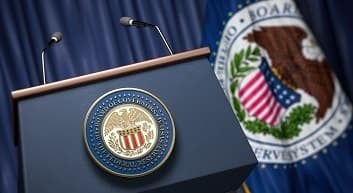 If you’ve ever opened up a savings account, taken out a loan on a car, or cashed a check, you’ve had personal experience with the banking system. All credit unions, banks, and other financial institutions are a part of this system. Among other things, it gives people a place to save their money, helps consumers with their investments, and gives out loans for homes, cars, and more. And at the head of it all sits “the Fed,” overseeing the banking system in the United States.
If you’ve ever opened up a savings account, taken out a loan on a car, or cashed a check, you’ve had personal experience with the banking system. All credit unions, banks, and other financial institutions are a part of this system. Among other things, it gives people a place to save their money, helps consumers with their investments, and gives out loans for homes, cars, and more. And at the head of it all sits “the Fed,” overseeing the banking system in the United States.
The Fed
Because the banking system is so big and so important to the economy, the U.S. has an organization that is in charge of making sure the whole system works smoothly. This organization is often referred to as “the Fed.” The Fed is short for the Federal Reserve System (also simply called “the Federal Reserve”). The Federal Reserve functions as the central bank for the United States of America.
What is a Central Bank?
There are banks, and then there is the Bank. A central bank functions as the Bank, so to speak. Today, the majority of countries have a central bank of their own. Most central banks around the world share certain responsibilities. A few common ones are:
- Controlling the money supply. Central banks make sure there is the right amount of money circulating throughout the country—not too much, not too little. This helps keep monetary inflation and deflation in check.
- Making sure the country’s banking system works properly. Central banks do this by creating monetary policy. Monetary policy is made up of rules and regulations for financial institutions.*
- Acting as a bank for the government. Just like you might have your own account at a credit union or bank, the national government needs a bank, too. This need is met by the central bank.
- Serving as a “bank for banks.” Central banks provide a place where other financial institutions can save their money, carry out money transfers, and take out loans when needed. This includes both credit unions and banks.
*In the United States, federal credit unions such as Cyprus are directly regulated by the National Credit Union Administration (NCUA) rather than the Federal Reserve. Though monetary policy created by the Fed can still carry over to credit unions, such policy may be enforced by the NCUA.



